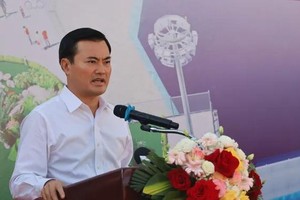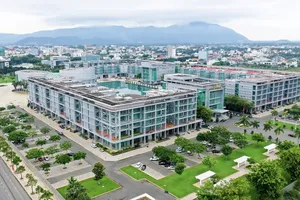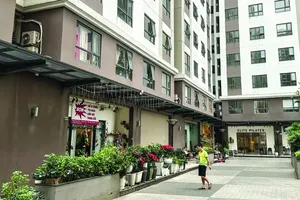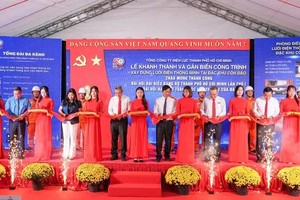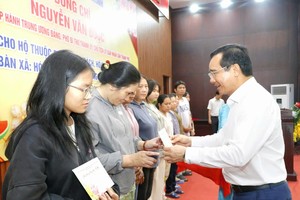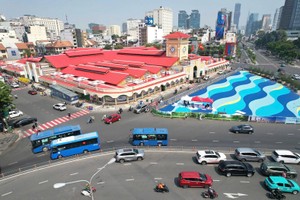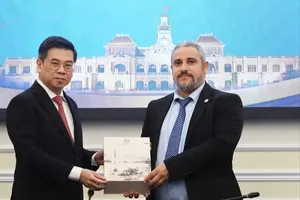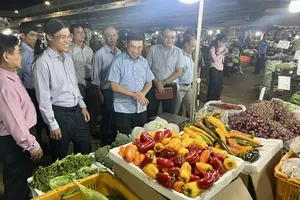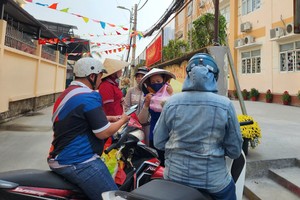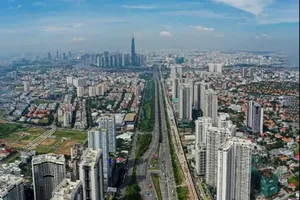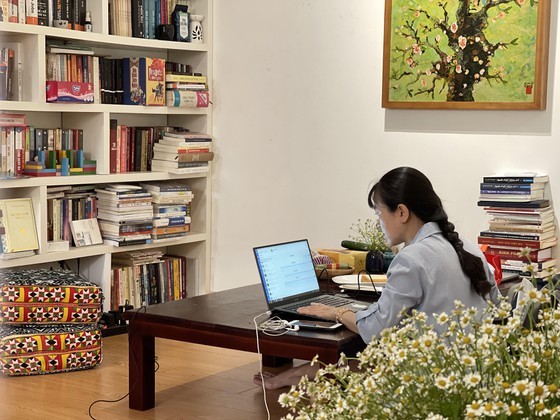 Tran Huynh The My, an expert from the Social Insurance Agency of Ho Chi Minh City, is told to work from home (Photo: SGGP)
Tran Huynh The My, an expert from the Social Insurance Agency of Ho Chi Minh City, is told to work from home (Photo: SGGP)
Tran Huynh The My, an expert from the Social Insurance Agency of Ho Chi Minh City, logged into the online working system at 7.30 AM normally. First, she joined the group for attendance registers and receive new instructions from the leaders.
While exchanging work at the beginning of the day, she quickly entered into the system of the social insurance industry to review the application files of residents’ and businesses’ digital social insurance.
Ms. My said that every week, she works from home for two days and three days at the office. At 4 p.m. every day, she and her colleagues send their reports of their work to the agency for evaluation. “Working from home gives me a sense of a modern, open, but self-disciplined and effective working style,” she commented.
Nearly 1,300 civil servants, officials, and employees of the city’s social security sector alternately work from home. Director of the Social Insurance Agency Phan Van Men assessed that every working day, the social insurance agency receives and processes about 25,000 documents, so civil servants in the sector work intensely. Thanks to the application of information technology in the sector, civil servants and public employees working from home can still solve all procedures without stop.
Director of the municipal Department of Labor, Invalids and Social Affairs Le Minh Tan said that half of the work is done at home; however, civil servants who are working at drug addiction treatment facilities and social protection facilities must arrive at their workplaces.
Nguyen Tri Dung, Chairman of Go Vap District People's Committee (HCMC), said that when the district started to apply social distancing measures according to the Government’s Directive 16, officials and civil servants were told to work from home. However, all civil servants were mobilized to ensure work at the office, working from home, and assigned tasks during the implementation of social distancing.
Drive for digital transformation
Chief of Office of the People's Council - People's Committee of District 6 Doan Tran Hai Au, said that a clerical employee who is residing in Go Vap District has been told to work from home since the social distancing policy was introduced. Civil servants take turns to work from home but they are required to turn on their mobile phones 24 hours a day.
The coronavirus has generally affected work, but Mr. Hai Au assessed this as an opportunity to promote the application of information technology and increase the rate of electronic submissions. In the current situation, handling and submitting electronic records are almost a must-do.
Mr. Hai Au added that this year as per the city authority’s goal, more than 70 percent and 40 percent of the submitted files must be sold in the internet in district administrations and at the ward administrations respectively. He analyzed: “This is also an opportunity for units to find solutions to increase the rate of electronic documents. Electronic documents are very convenient in the process of digital transformation, plus saving a lot of money.”
To facilitate the home working of civil servants and employees, the Department of Information and Communications has issued guidance on the application of information technology in the peak of Covid-19 prevention and control.
Particularly at the city Department of Information and Communications, Director of the Department Lam Dinh Thang said that the Department has allowed its employees to work from home during the 2020 outbreaks; hence, this year, civil servants have applied technology to solve work at home. In particular, most civil servants have used digital signatures to submit documents through document management and operating software.
According to lecturer Nguyen Dang Phuong Truyen of the Sub-Institute of the National Academy of Public Administration in Ho Chi Minh City, the efficiency of home working is still guaranteed, while workers do not need to go to the office, reducing traffic congestion and therefore saving time. In his opinion, working from home makes people as productive as people who work in the office as present technology can help us to work more efficiently. Therefore, after the Covid-19 epidemic is under control, some civil servants should be allowed to continue working from home.
On the contrary, Chairman of the People's Committee of District 10 Vu Anh Khoa doesn’t think working from home can work long-term but during the global pandemic. Though working from home is initially effective, it should only be applied when implementing social distancing. In the long term, it is still advisable to follow the regulations that civil servants must work directly at the agencies to handle administrative procedures. Currently, when civil servants are told to work from home, there are also existing limitations such as difficulties in exchanging work between leaders and employees.
